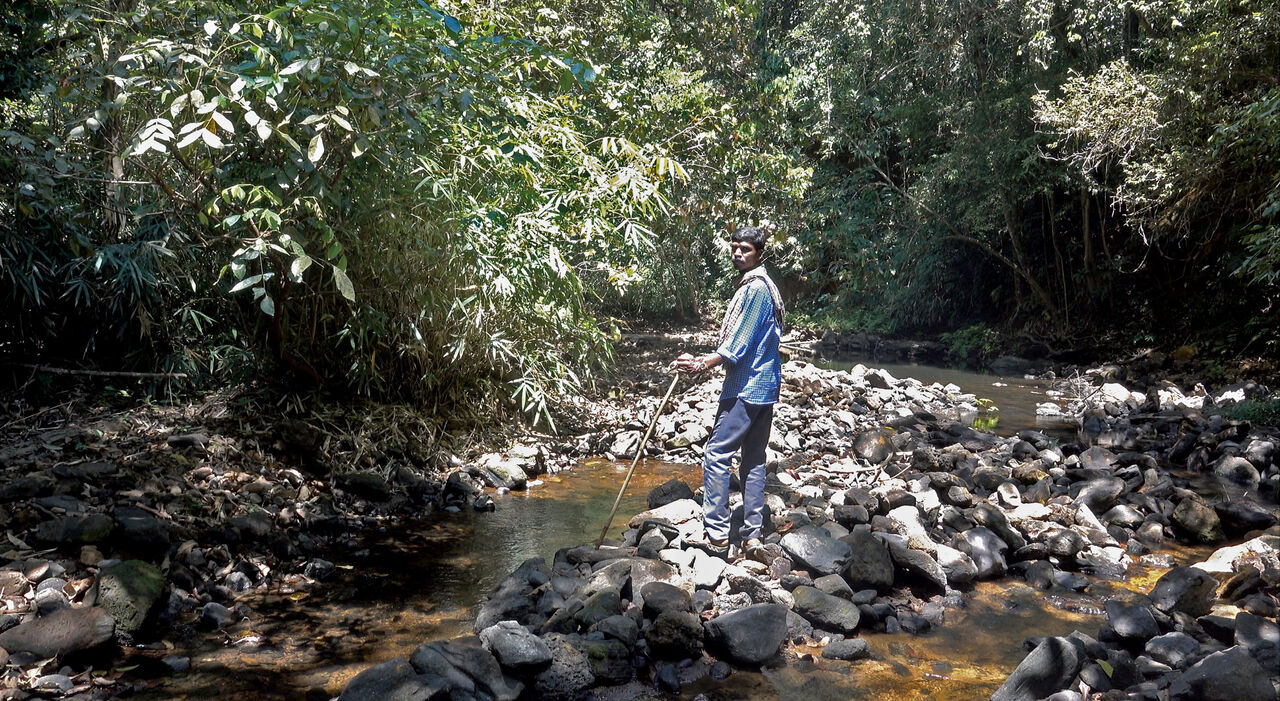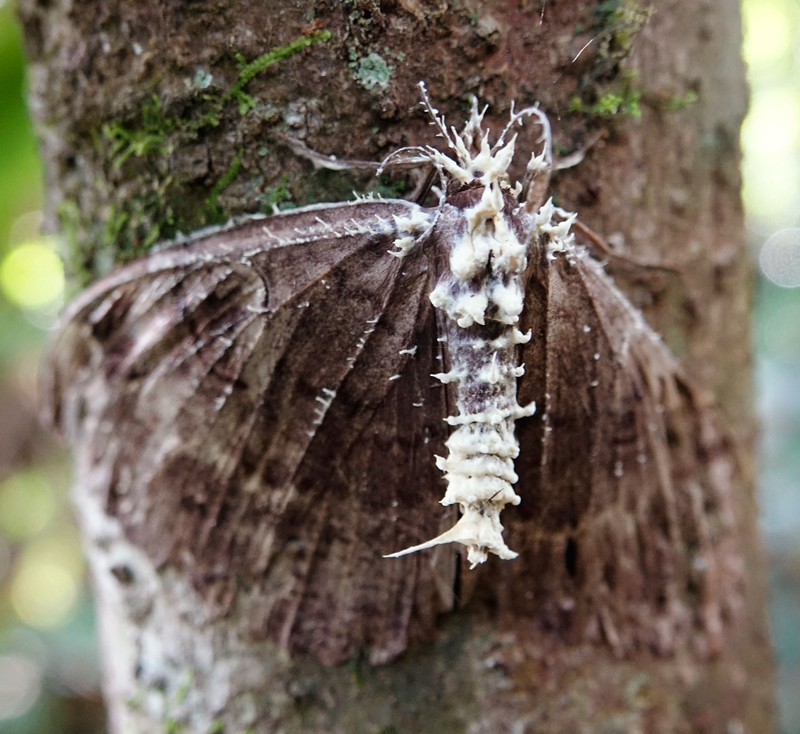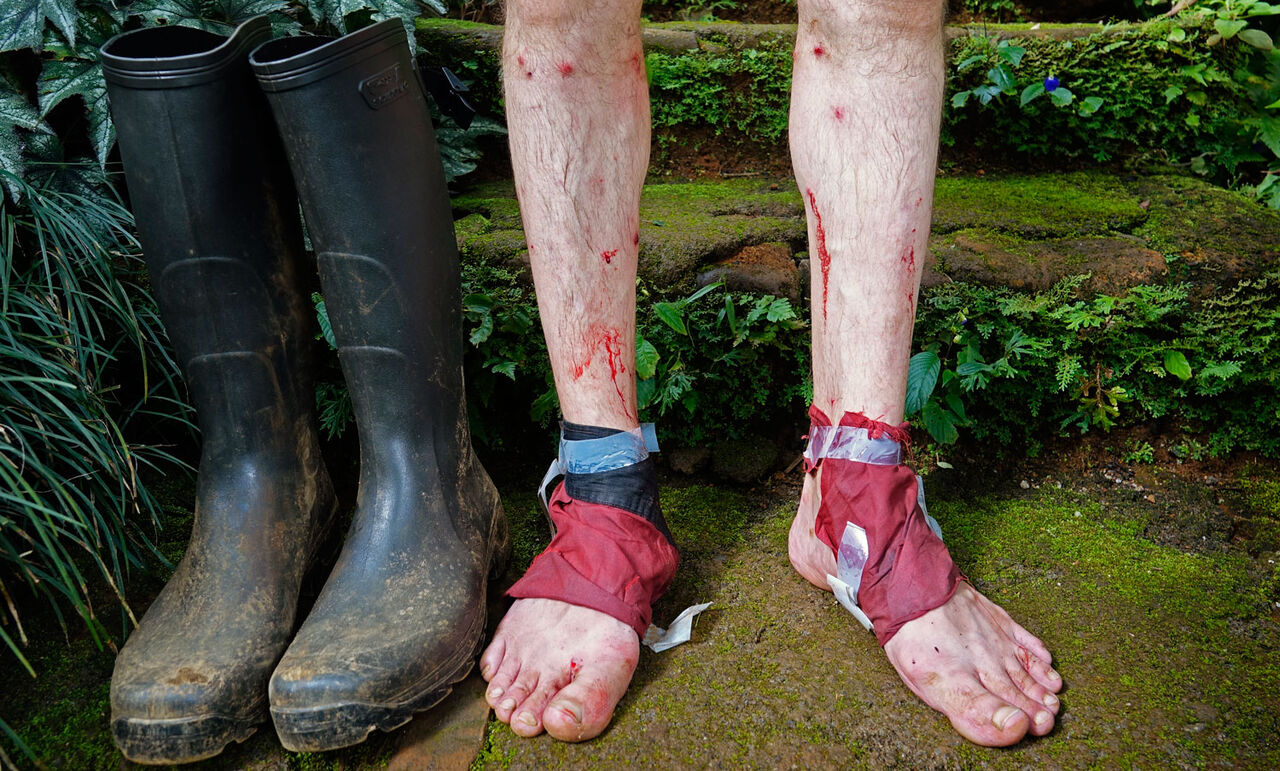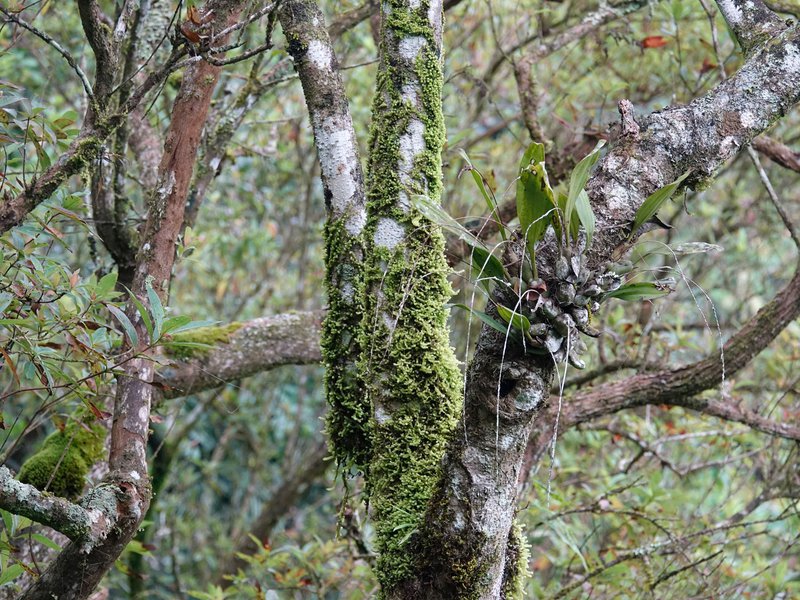How to walk like something is around you?
Concerning the Experience of Unconditional Hospitality in the Kerala Rainforest.
First published on FoAM’s blog

Artist Catherine Harris has called for “unconditional hospitality” towards the natural world. Her appeal includes “slow spaces” where humans join in the great flows and rhythms of nonhumans. It’s a vision of human cultures that unconditionally accommodate the needs and habits of other beings. Voiced in her talk entitled: “Posthuman Place: hospitality and responsibility in the landscape” at the UN/GREEN festival in Riga in 2019 I think what I experience in the rainforest in Kerala, in the wetlands in Coorg, and among the clouds in the Nilgiris is that, for some of us, this unconditional hospitality may take some getting used to.
The Kerala rainforest may be under all sorts of pressure, but at the Gurukula Botanical Sanctuary the presence of life is still almost overwhelming. The GBS team has enabled a remarkable regeneration of rainforest species. With the plants the animals are also coming back. Every few meters there is a creature I’ve never encountered before:
What looks like a leaf waving in the wind turns out to be a beetle doing an elaborate kind of tap dance on a branch and as I admire it, I’ve walked into a web of a spider the size of my hand. While plucking the web from my face, the sound of what can only be described as a broken bicycle comes from the canopy. Could it be a bird!? Something flies by at high speed, I think it’s a kind of butterfly, but can butterflies go that fast? Ants emerge from clay tunnels along that tree trunk or perhaps these are termites. The strange disks up above me must be mushrooms... oh wait there is a snake just resting behind them! I think those white spikes among the leaf litter by the stream are fungi. They seem to be growing out of some dead insects like a strange architecture. Wait a minute, do tadpoles really grow that big here?
This is a typical rainforest walk. Where you find yourself wondering about what category of thing you’ve just encountered.

Moth / Fungus
Coming to the Sanctuary and affiliated places where friends work to encourage wildlife makes me realise how different the situation tends to be in Europe. At home quiet contemplation is my dominant form of relating to nature. I’m used to observing a flock of birds or some community of plants on my own terms and just sit on a bench letting my mind wander on it all. My inner dialogue remains largely unchallenged. We live in environments that are further removed from self-expression than at any stage in human existence. Every generation gets accustomed to increasingly depleted landscapes. Our silent springs are followed by silent summers, silent autumns, and silent winters. Walking through that environment is a private affair.
The more I learn about natural processes the more I become aware of being surrounded by death. The Netherlands are an ecologically silent space where my thoughts rarely get interrupted. But in the Sanctuary very little time can be spent in that kind of detached reflection. Here the forest looks back. Day or night you’ll be interrupted by something buzzing past, going on with a very different life. Here in the rainforest there is always something ready to engage with physically or semiotically; butterflies will start landing on you, ants will come to climb you, and leeches start heading your way. The constant chatter of species comes with waves of deafening chants of cicadas, strange deep hoots of owls, the scuttling of something among the leaves, the choruses of frogs that remain invisible. Forget about private contemplation, participation rules here. Relentlessly.

Leeches
People here seem accustomed to a permanent multi-species dialogue and their ability to perceive life happening around them is uncanny. When walking in the forest with locals like Sajji, Suprabha, Abhishek, or Jaimon they seem able to simultaneously spot organisms high in the canopy and consider where to place their feet among the slippery roots and stones and monitor the most minute shifts in the sound-cape and smell-scape. Sajji notices how people from the city and foreigners seem different. He says it seems that they do not know how to walk. He doesn't mean being agile enough to walk on the slippery rocks through the river, but observes that people unaccustomed to the forest seem to walk as-if nothing is around them. His words blow me away. That is exactly how I feel around him and other forest dwellers.
During a walk with Jaimon he describes how local Paniya and Kurichya people say they forget about their troubles and worries when they go into the forest. It sounds like so much of their perception is outward-focused that it helps them forget themselves, attaining a kind of non-duality that Sigmund Freud described as “the oceanic experience”. It’s hard to imagine an equivalent space in industrial society because almost every location there is human-centred: the narratives are almost exclusively human and they are tailored to human noses, human ears, and human eyes and expressed through human movement and human voices. It’s a monoculture in comparison.

Epiphytes
Friends working with the land here in India do so from a multi-species engagement. Their hospitality invites monkeys, tree-ferns, otters, liverworts, and even elephants. Through the right kind of care they have become surrounded by hundreds of dragonflies, cicadas, tree-frogs, carnivorous plants, orchids, snakes, owls, civet-cats, porcupines, leopards, beetles, and grasshoppers. In the Netherlands you’d be extremely lucky to get one species of orchid or a rare bird. So there is a kind of ecological depth to working with the land in India that is extremely attractive, but this level of hospitality can be somewhat challenging for the unaccustomed.
Unlike Catherine Harris, my impression is that these are high-dimensional spaces where life can reach out in all kinds of directions and does so with enormous speed and enthusiasm. The great tragedy of our time is that we may live on the only known planet with macroscopic life, but that very few of us ever get to experience the full force of life, where it can express itself at full volume. The good news is that humans can also be this: uniquely gifted gardeners that can help restore natural processes.
We are the gardening ape.
Knowing When (Not) to Interfere
❧